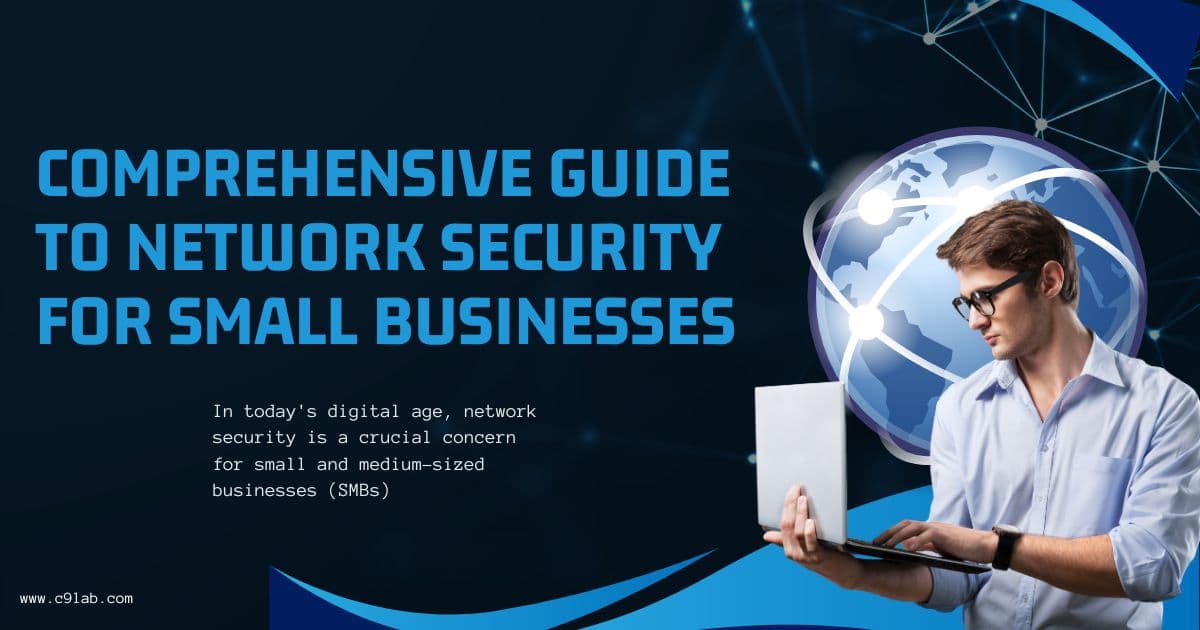
Comprehensive Guide to Network Security for Small Businesses
In today’s digital age, network security is a crucial concern for small and medium-sized businesses (SMBs). With the increasing threat of cyber attacks, it is essential to implement robust security measures to protect your business’s sensitive data and maintain customer trust. This comprehensive guide will provide you with essential network security tips tailored specifically for small businesses.
Understanding Network Security for SMBs
Network security involves protecting your business’s network infrastructure from unauthorized access, misuse, or theft. For SMBs, this means implementing measures to safeguard all digital assets, including computers, servers, wireless networks, and data.
1. Conduct a Network Security Assessment
The first step in securing your network is to conduct a thorough assessment. This involves identifying all network assets, evaluating potential vulnerabilities, and understanding the specific security needs of your business.
Tip: Use tools like C9Eye to perform comprehensive vulnerability monitoring and gain insights into your network’s health and security status.
2. Secure Your Network Perimeter
Protecting the perimeter of your network is crucial to prevent unauthorized access. This includes setting up firewalls, intrusion detection systems (IDS), and intrusion prevention systems (IPS).
Tip: Ensure that your firewall settings are configured correctly and regularly updated to defend against the latest threats.
3. Implement Strong Password Policies
Passwords are the first line of defense in network security. Implementing strong password policies can significantly reduce the risk of unauthorized access.
Tip: Require employees to use complex passwords that include a mix of letters, numbers, and special characters. Encourage regular password changes and the use of password managers.
4. Use Multi-Factor Authentication (MFA)
Multi-factor authentication (MFA) adds an extra layer of security by requiring users to verify their identity through multiple methods before accessing the network.
Tip: Enable MFA for all critical systems and accounts to enhance security.
5. Regularly Update Software and Systems
Keeping your software and systems up-to-date is essential for protecting against known vulnerabilities. Regular updates and patches can help prevent cybercriminals from exploiting weaknesses in your network.
Tip: Automate updates wherever possible to ensure timely patching of security vulnerabilities.
6. Educate Employees on Cybersecurity Best Practices
Employees play a critical role in maintaining network security. Providing regular training on cybersecurity best practices can help prevent common threats like phishing and malware.
Tip: Implement C9Phish, an AI-based training solution that delivers customized cybersecurity training to address specific vulnerabilities and enhance employee awareness.
7. Backup Data Regularly
Regular data backups are crucial for ensuring business continuity in the event of a cyber attack or data loss. Store backups in a secure, offsite location and test them regularly to ensure they can be restored when needed.
Tip: Develop a robust data backup and recovery plan that includes both on-site and cloud-based backups.
8. Secure Wireless Networks
Wireless networks are often a weak point in network security. Ensure that your Wi-Fi networks are secure and that unauthorized users cannot gain access.
Tip: Use strong encryption methods, such as WPA3, and hide your network’s SSID to make it less visible to potential attackers.
9. Monitor Network Traffic
Continuous monitoring of network traffic can help detect unusual activities and potential security breaches. Implementing network monitoring tools can provide real-time insights into your network’s performance and security.
Tip: Use C9Eye for real-time performance and security monitoring, helping you to quickly identify and respond to threats.
10. Develop an Incident Response Plan
Having a well-defined incident response plan is essential for effectively handling security breaches. This plan should outline the steps to take in the event of an attack, including how to contain the breach, assess the damage, and restore normal operations.
Tip: Regularly review and update your incident response plan to ensure it remains effective against evolving threats.
FAQs
- Why is network security important for small businesses?
Network security is crucial for small businesses to protect sensitive data, maintain customer trust, and ensure business continuity. Cyber attacks can have devastating financial and reputational impacts on SMBs.
- How can C9Eye help with network security for SMBs?
C9Eye offers comprehensive vulnerability monitoring and real-time performance insights, helping SMBs identify and address potential security threats before they can cause harm.
- What is multi-factor authentication (MFA) and why should I use it?
Multi-factor authentication (MFA) requires users to provide multiple forms of verification before accessing accounts or systems, adding an extra layer of security and reducing the risk of unauthorized access.
- How often should I update my software and systems?
Software and systems should be updated as soon as updates or patches are available. Automating updates can help ensure that you are always protected against the latest threats.
- What should be included in an incident response plan?
An incident response plan should include steps for identifying and containing a breach, assessing the damage, communicating with stakeholders, and restoring normal operations.
Conclusion
Implementing robust network security measures is essential for protecting your small business from cyber threats. By conducting regular security assessments, securing your network perimeter, using strong passwords and multi-factor authentication, updating software, educating employees, and monitoring network traffic, you can create a secure environment for your business operations.
Incorporating solutions like C9Eye for vulnerability monitoring and C9Phish for employee training can further enhance your network security strategy. Stay proactive, stay informed, and prioritize network security to safeguard your small business.
